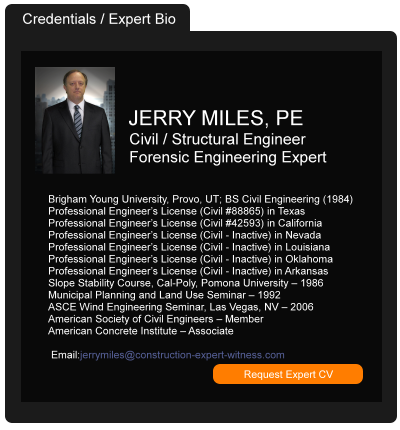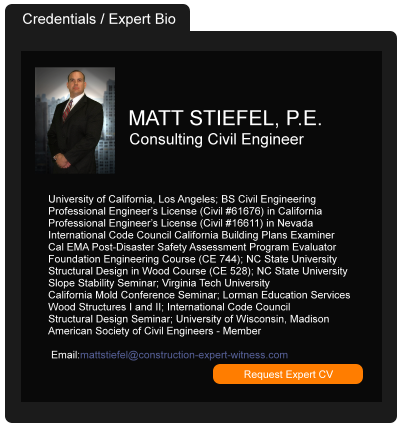What Is the Best Way to Avoid Rezoning Disputes?
August 30, 2021 —
Collier Marsh - Construction ExecutiveConstruction companies and developers are accelerating projects in the southeast and throughout the country as the economy rebounds from the worst of the COVID-19 pandemic. Whether they are building commercial, industrial or residential projects, these developments often require rezoning to maximize an investment. But rezoning disputes can add significant delays and costs to a project and can even defeat the project altogether.
There are proactive steps construction companies can take to avoid disputes as they are working to secure rezoning approval, as well after the rezoning is complete. During the initial rezoning process, before a final municipal decision, one of the best practices is to anticipate opposition and address it head-on. As for post-approval disputes, those often come down to how carefully a company followed the local procedures and, where applicable, the local evidentiary requirements.
Reprinted courtesy of
Collier Marsh, Construction Executive, a publication of Associated Builders and Contractors. All rights reserved.
Read the court decisionRead the full story...Reprinted courtesy of
Mr. Marsh may be contacted at
colliermarsh@parkerpoe.com
A Court-Side Seat: An End-of-Year Environmental Update
January 09, 2023 —
Anthony B. Cavender - Gravel2GavelAs 2022 draws to a close, here is a brief description of recent environmental and regulatory law rulings, as well as new federal rulemaking proceedings.
United States Tax Court
Green Valley Investors, LLC et al, v. Commissioner of Internal Revenue
On November 9, 2022, the Tax Court agreed with the taxpayers that the IRS’s use of administrative Notice 2017-10 to impose substantial tax liabilities violated the Administrative Procedure Act (APA). The notice was the agency’s response to a provision in the American Jobs Creation Act of 2004 which increased the penalties for engaging in a reportable transaction understatement. Here, at issue was the value of charitable deductions generated by the creation of environmental easements made in connection with land transactions. These claimed deductions amounted to more than $60 million. The petitioners argued that IRS Notice 2017-10, which authorized such large penalties, was in fact a “legislative rule” whose promulgation should have complied with the notice and comment requirements of the APA. The agency contended that the Congress, by implication, absolved the IRS from the notice and comment requirements. The court agreed with the petitioners and set aside Notice 2017-10 and the imposition of penalties under Section 6662A of the Jobs Creation Act. On December 8, 2022, the IRS published a notice of proposed rulemaking that would correct the APA deficiencies noted by the courts. (See 87 FR 75185.)
Read the court decisionRead the full story...Reprinted courtesy of
Anthony B. Cavender, PillsburyMr. Cavender may be contacted at
anthony.cavender@pillsburylaw.com
Construction Payment Remedies: You May be Able to Skate by, But Why?
April 06, 2016 —
Garret Murai – California Construction Law BlogMy grandfather used to say that “anything worth doing, is worth doing well.”
It wasn’t until later that I learned the quote wasn’t his, but a quote from Philip Stanhope the Fourth Earl of Chesterfield, who said in his posthumously published and quite lengthily titled Letters to His Son on the Art of Becoming a Man of the World and a Gentleman, that “whatever is worth doing at all, is worth doing well.” I’m not sure where my grandfather, who wasn’t a man of letters, picked up this quote, but I like his version better.
While “anything worth doing, is worth doing well” can be said to apply to a wide variety of things in life, including living itself, it applies equally to the world of construction payment remedies, which have requirements that are both detailed and deadline driven.
Read the court decisionRead the full story...Reprinted courtesy of
Garret Murai, Wendel Rosen Black & Dean LLPMr. Murai may be contacted at
gmurai@wendel.com
New York State Legislature Reintroduces Bills to Extend Mortgage Recording Tax to Mezzanine Debt and Preferred Equity
March 15, 2021 —
Steven E. Coury & Marissa Levy - White and WilliamsCompanion bills in the New York State Legislature, Assembly Bill No. A3139 and Senate Bill No. S3074, if enacted, would subject mezzanine loans and preferred equity investments to the same recording and taxation requirements placed on mortgages.
The bills were reintroduced last month after similar bills (S7231/A9041) were introduced in the 2019-2020 legislative session. The prior bills died in committee when last year’s legislative session adjourned.
As discussed in our prior alert, the proposed bills would require: (1) a financing statement evidencing any mezzanine debt and/or preferred equity investments related to real property to be filed in the county in which the real property is located and (2) a recording tax, at the same rate as the applicable mortgage recording tax rate (2.80% for commercial mortgages over $500,000 in New York City), to be imposed on the amount of the debt and/or investment at the time the financing statement is filed. The bills contain a limited carve-out for owner-occupied residential cooperatives.
Reprinted courtesy of
Steven E. Coury, White and Williams and
Marissa Levy, White and Williams
Mr. Coury may be contacted at courys@whiteandwilliams.com
Ms. Levy may be contacted at levmp@whiteandwilliams.com
Read the court decisionRead the full story...Reprinted courtesy of
Mold Due to Construction Defects May Temporarily Close Fire Station
October 25, 2013 —
CDJ STAFFFire Station 5 in Chino, California is about to undergo mold remediation. Ruben Martinez, the city’s Public Works Director, expects the station to be closed during remediation. “We’d like to get the firemen out of there so there isn’t any potential infection or worker’s compensation issues,” he said. However, Fire Department Captain Steve Harrison did not think the station needed to be closed. “We are adamant the station stays staffed while the remediation work is completed.”
The mold came about due to problems the station has had with roof leaks since its opening in 1999. The current set of repairs will cost between $12,000 and $25,000, and the city is discussing matters with its insurer to determine who will pay for the repairs. It’ won’t be the original contractor, as the building is past the 10-year limit for construction defect claims. Even if a claim were possible, the contractor who built the building is bankrupt.
Read the court decisionRead the full story...Reprinted courtesy of
More Clear, But Not Yet Crystal: Virginia Amends its Prompt Payment Law and Legislation Banning “Pay-If-Paid Clauses in Construction Contracts Effective July 1, 2023
November 16, 2023 —
Hanna Lee Blake - ConsensusDocsThe Virginia General Assembly has joined a minority of jurisdictions that ban pay-if-paid clauses in construction contracts on public and private projects. Senate Bill 550 went into effect applying to contracts executed after January 1, 2023, and most recently has been amended effective July 1, 2023. This update highlights the recent amendments to Virginia’s prohibition against pay-if-paid provisions, of which owners and contractors should be aware to ensure that their contracts comply with developing law in the Commonwealth.
Recap on Senate Bill 550
On April 27, 2022, the Virginia General Assembly passed Senate Bill 550, which amended Virginia Code §§ 2.2-4354 and 11-4.6, which govern both public and private sector contracts. In short, SB 550 (as the bill is commonly known) prohibited pay-if-paid clauses, and established fixed deadlines for the payment of invoices on private projects. Previously, Virginia’s Prompt Payment Act only applied to public projects.
Read the court decisionRead the full story...Reprinted courtesy of
Hanna Lee Blake, Watt TiederMs. Blake may be contacted at
hblake@watttieder.com
Pipeline Safety Violations Cause of Explosion that Killed 8
April 02, 2014 —
Beverley BevenFlorez-CDJ STAFFBloomberg Business Week reported that “PG&E Corp. (PCG:US), owner of California’s largest utility, was charged with 12 pipeline safety violations by the U.S. government for a 2010 natural gas explosion that killed eight people and left a crater the size of a house.”
PG&E was charged “with knowingly and willfully violating the Natural Gas Pipeline Safety Act by failing to test and assess unstable pipelines to determine whether they could fail.”
Furthermore, “Federal investigators are studying whether a leaking gas main operated by Consolidated Edison Inc. (ED:US) contributed to an explosion in New York City last month that also claimed eight lives.”
Read the court decisionRead the full story...Reprinted courtesy of
Three's a Trend: Second, Fourth and Ninth Circuits Uphold Broad "Related Claims" Language
February 23, 2016 —
Greg Steinberg – White and Williams LLPThe hallmark of a claims-made insurance policy is that the policy only provides coverage for claims that are “first made” during the policy period. As noted by the Texas Supreme Court, “for the insurer, the inherent benefit of a claims-made policy is the insurer's ability to close its books on a policy at its expiration and thus to attain a level of predictability unattainable under standard occurrence policies.”[1]
To ensure this “level of predictability,” claims-made insurance policies contain provisions stating that all “Related Claims” will be treated as a single claim deemed first made at the time the earliest of such claims was made. The “Related Claims” provision is an issue that comes up time and again – claims can span years, especially in the context of regulatory investigations, which often culminate in enforcement proceedings and litigation. This inevitably leads to disputes regarding whether later claims can be related back to the earlier claim, an issue that becomes even thornier when different insurers participate on different policy years.
Over time, case law on “Related Claims” has been mixed and somewhat inconsistent, with each case tending to hinge on its own unique set of facts, making it difficult to identify a clear standard for determining whether claims are related. However, three recent decisions out of the Second, Fourth and Ninth Circuits show that courts are increasingly deferring to the plain language of the policy and applying these provisions broadly.
Read the court decisionRead the full story...Reprinted courtesy of
Greg Steinberg, White and Williams LLPMr. Steinberg may be contacted at
steinbergg@whiteandwilliams.com


































































